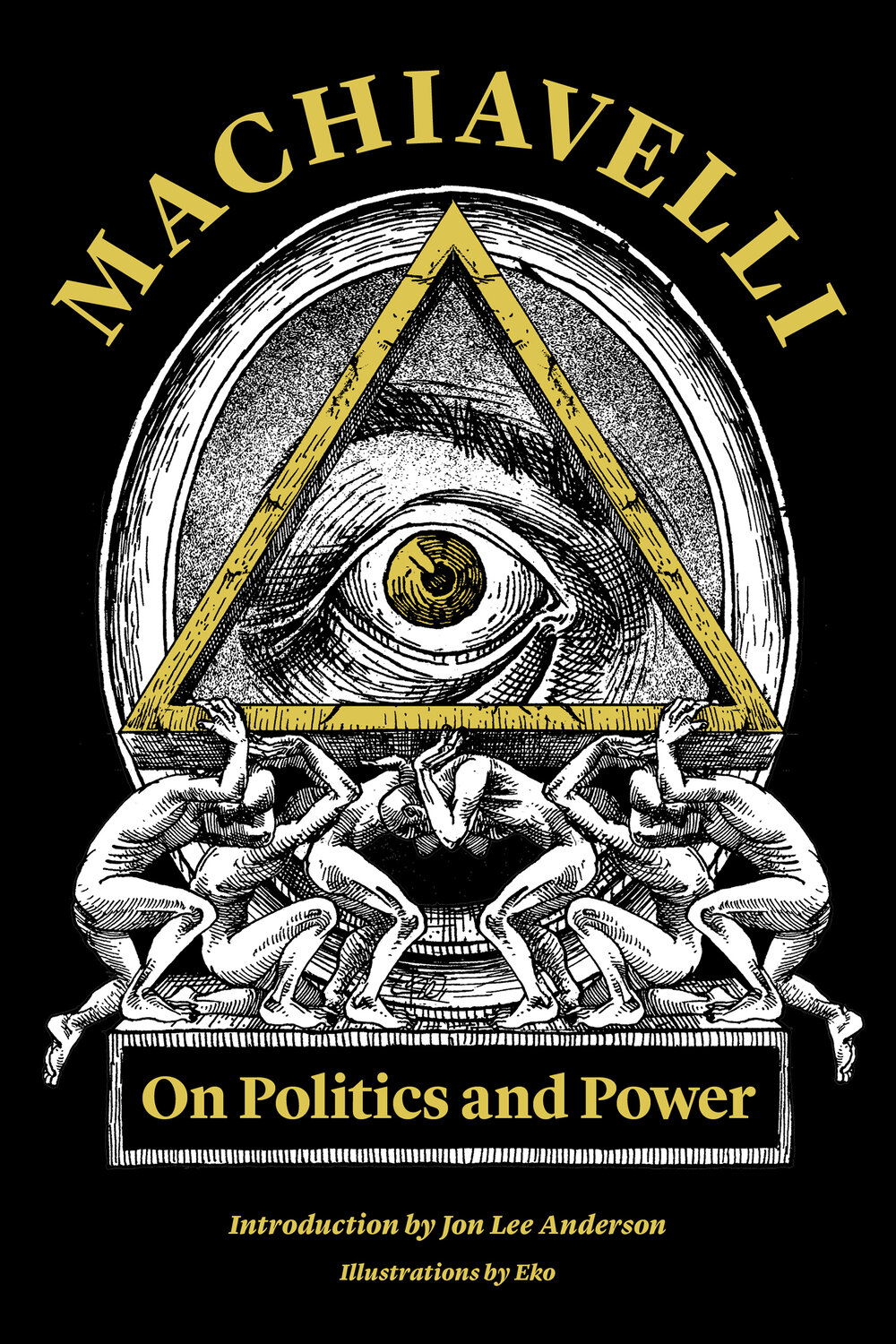Books About Machiavelli: Unveil the Art of Power
“The Prince” by Niccolò Machiavelli is a seminal work on political strategy. “Machiavelli: A Biography” by Miles J. Unger offers a comprehensive look at his life.
Exploring the cunning mind of Niccolò Machiavelli invites readers into the turbulent world of Renaissance power politics. His works, particularly “The Prince,” have become essential readings in the realm of political philosophy and realpolitik. For those eager to delve deeper into Machiavelli’s controversial insights, a wealth of books await.
Biographies like Unger’s shed light on the man behind the theories, while analyses and commentaries help interpret his complex ideas. Readers seeking to understand the mechanics of power and influence will find Machiavelli’s perspective as relevant today as it was in the 16th century. These books not only illuminate historical strategies but also offer guidance that resonates in modern political and business environments.

Credit: www.penguinrandomhouse.com
The Essence Of Machiavellianism
The concept of Machiavellianism often stirs intrigue and curiosity. It draws from the writings of Niccolò Machiavelli, a name synonymous with cunning and strategic thinking. Understanding the essence of Machiavellianism involves delving into its core principles and historical roots. Let’s uncover the layers of this complex ideology.
Key Principles
Machiavellianism centers on power, manipulation, and realpolitik. It suggests that the end justifies the means. Key principles include:
- Power as the ultimate goal.
- Deception to achieve and maintain power.
- Pragmatism over morality.
Books about Machiavelli reveal that leaders often use these tactics. They may appear unethical but are effective in governance and control.
Historical Context
The Renaissance era birthed Machiavellian thought. During this time, Italy faced political turmoil. This environment shaped Machiavelli’s perspectives. His most famous work, “The Prince,” highlights the need for rulers to be feared rather than loved to secure their reign. The historical backdrop of Machiavellianism is key to understanding its development and continued relevance.
Machiavelli’s Magnum Opus: The Prince
Niccolò Machiavelli’s work The Prince remains a pivotal book in political theory. Written in the early 16th century, its insights into power and statecraft endure. Scholars and leaders study it extensively, fascinated by its candid exploration of ruling and governance. The Prince guides those seeking to understand or achieve political power.
Themes And Analysis
Machiavelli’s The Prince delves into various themes. Morality, power, and human nature stand out. It suggests rulers must sometimes act beyond conventional morality to maintain authority. Realpolitik, a term that describes politics based on practical rather than moral or ideological considerations, originates from Machiavelli’s ideas.
- Power Dynamics – How rulers maintain their grip on power.
- Warfare – Its role in expanding and protecting a state.
- Human Nature – People’s responses to leadership and power.
Impact On Political Thought
The impact of The Prince on political thought is immense. It is often considered a foundational text in modern political philosophy. The work challenges the role of ethics in politics, suggesting that the ends justify the means. This controversial idea sparked debate and influenced countless political figures.
| Concept | Definition | Impact |
|---|---|---|
| Realpolitik | Politics based on practicality | Influenced modern statecraft |
| Power Ethics | Ends justify the means | Sparked global debate |
| Political Realism | Focus on power and security | Shaped international relations |
Exploring ‘the Discourses On Livy’
Exploring ‘The Discourses on Livy’ by Niccolò Machiavelli offers deep insights into political theory. This work, less famous than ‘The Prince’, still resonates with readers today. It examines the structure and benefits of republics and principalities. Leadership lessons also emerge from its pages.
Republics Vs. Principalities
Machiavelli contrasts two forms of government in ‘The Discourses on Livy’. Republics operate with the public’s interest in mind. Principalities focus on the ruler’s power.
- Republics: More stable, promote civic virtue
- Principalities: Easier to control, but riskier
Lessons In Leadership
Leadership is a central theme in ‘The Discourses on Livy’. Machiavelli provides valuable tips for effective governance.
- Be adaptable to change
- Understand the people’s needs
- Use history as a guide

Credit: www.amazon.com
Contemporary Interpretations
Many modern authors have written about Machiavelli’s ideas. They look at his work through new lenses. This gives readers fresh perspectives. Let’s explore how today’s thinkers apply Machiavelli’s theories to current issues.
Modern Political Analysis
Machiavelli’s work remains vital in political science. Experts use his ideas to understand power and statecraft. They see his influence in elections and policy-making. This helps explain modern political strategies.
- Leadership and power dynamics
- Impact of Machiavellian tactics in elections
- Use of fear and love in governance
Machiavelli In Business Strategy
Business leaders turn to Machiavelli for strategy. His insights help them in competition and management. They learn when to be ruthless and when to be kind. This balance is key for success.
| Concept | Business Application |
|---|---|
| Power consolidation | Merger and acquisition tactics |
| Opportunism | Market entry strategies |
| Decisiveness | Corporate decision-making |
Critics Of Machiavelli
Niccolò Machiavelli, a name synonymous with political cunning and strategy, has divided scholars and readers for centuries. His seminal work, “The Prince,” provides a pragmatic approach to power politics, often seen as ruthless and amoral. Critics argue the ethical implications of his advice, leading to intense debate and interpretation.
Ethical Considerations
The ethics behind Machiavelli’s teachings spark significant contention. Critics label his views as morally corrupt and dangerous. They argue that his separation of politics from ethics leads to a justify-the-means approach. Such a stance is often considered detrimental to a just society. Ethical critics worry about the implications of his advice on leadership and governance.
Misinterpretations And Controversies
Misunderstandings of Machiavelli’s work are common. Some historians suggest that his writings are satirical or a critique of power. Others believe they have been taken out of historical context. This leads to controversy over his true intentions. Such debates fuel the fiery discussions surrounding his legacy and relevance.
- Use of Power: Is it for stability or personal gain?
- Historical Context: How do Renaissance values influence his work?
- Modern Relevance: Do his teachings apply today?
Influence On Literature And Culture
The legacy of Niccolò Machiavelli shapes literature and culture deeply. His ideas stretch far beyond the pages of his notorious work, “The Prince”. Writers and artists draw inspiration from his insights into power and human nature. This influence appears in various forms across centuries. It ranges from direct references to subtle nods to his philosophies.
Machiavelli In Fiction
Machiavelli’s persona often appears in novels and stories. Authors create characters with cunning and strategic minds. They embody the traits of the Italian strategist. These characters navigate complex political landscapes. They do so with a Machiavellian approach.
- Political thrillers use Machiavellian tactics.
- Characters in historical novels mirror his cunning.
- Dystopian works explore themes central to Machiavelli’s ideas.
Philosophical Dialogues
Philosophers and thinkers engage with Machiavelli’s concepts. They do this through essays and debates. These discussions often focus on ethics and governance. They examine the relevance of Machiavelli’s ideas in modern society.
- Essays dissect Machiavelli’s influence on ethics.
- Debates contrast his views with those of other philosophers.
- Academic works probe the impact of “The Prince”.
Biographies Of Machiavelli
Niccolò Machiavelli, a name synonymous with political cunning and strategic acumen, has fascinated scholars and readers alike for centuries. His life, as intriguing as his works, is captured in numerous biographies that offer a window into the world of this Renaissance thinker. These biographies not only recount Machiavelli’s life but also contextualize his ideas within the tapestry of his times.
Insights Into His Life
Biographies of Machiavelli provide detailed accounts of his personal and professional journeys. They shed light on his early years, his rise to prominence as a diplomat, and his eventual fall from grace. Readers discover his struggles, his imprisonment, and the writing of his seminal work, “The Prince”.
- Early influences that shaped his philosophies
- His work with the Florentine Republic
- Correspondence with powerful figures of his time
- The impact of his exile on his writings
The Man Behind The Theories
The biographies delve into the personal attributes and experiences of Machiavelli. They separate the man from the myth. The books paint a picture of Machiavelli not just as a theorist but as a human with complexities and contradictions.
| Personal Traits | Influences on Work |
|---|---|
| His wit and humor | Political upheavals of the era |
| His relationships | Cultural dynamics of Renaissance Italy |
| His resilience in adversity | Historic events he witnessed |
These biographies give readers a multi-dimensional view of Machiavelli. They reveal the person who lived beyond the pages of political discourse. The man who faced challenges and possessed a remarkable intellect that continues to influence political thought.

Credit: restlessbooks.org
Guide To Reading Machiavelli
Niccolò Machiavelli wrote works that changed politics. His books are key to understanding power. Let’s dive into the best ways to read Machiavelli.
Recommended Editions
Choose the right edition for a great read. Look for modern translations. They make old texts easy to understand.
- “The Prince” – choose editions with notes. Notes explain historical context.
- “Discourses on Livy” – get editions with comparisons. They link ideas from different times.
- “The Art of War” – select annotated copies. Annotations offer extra insights.
Complementary Texts
Read other books to get more from Machiavelli. They shine light on his ideas.
| Title | Author | Why Read |
|---|---|---|
| Machiavelli: A Very Short Introduction | Quentin Skinner | Summarizes key concepts. |
| Machiavelli in Context | William J. Connell | Explains historical background. |
| The Prince: The Secret Teachings of Machiavelli | Stefano Daelli | Unpacks hidden lessons. |
Frequently Asked Questions
What Is The Best Book On Machiavelli?
The best book on Machiavelli is “The Prince” by Niccolò Machiavelli himself. This classic offers deep insights into political theory and power dynamics. It remains a fundamental read for understanding his philosophies.
Is Machiavelli Moral Or Immoral?
Machiavelli’s moral stance is complex and often debated. Some view him as immoral for prioritizing power over ethics, while others argue his realism is a form of political morality. Ultimately, labeling Machiavelli as strictly moral or immoral oversimplifies his nuanced perspective on power and governance.
What Is The Main Message Of Machiavelli?
Machiavelli’s main message emphasizes the importance of pragmatism and realpolitik in political leadership. He advocates for rulers to be cunning and adaptable to maintain power.
What Was Machiavelli’s Ideology?
Machiavelli’s ideology centers on political realism, advocating for pragmatic and strategic governance often perceived as amoral. He emphasizes the importance of power and practical concerns over idealism in statecraft.
Conclusion
Exploring the complex world of Machiavelli through books offers deep insights into political philosophy and human nature. Each title mentioned provides a unique lens on his theories and their impact over time. Whether you’re a student, scholar, or simply curious, delving into these works will enrich your understanding of Machiavellian principles.
Embrace the journey of exploring these profound texts for a well-rounded grasp of Machiavelli’s enduring influence.
